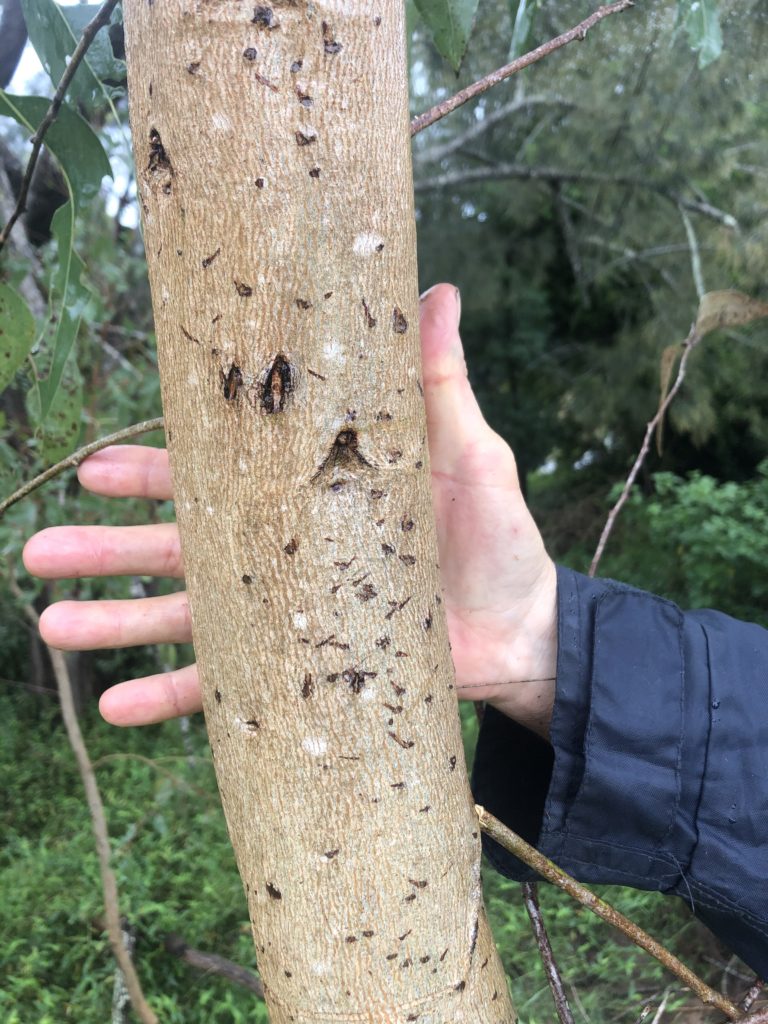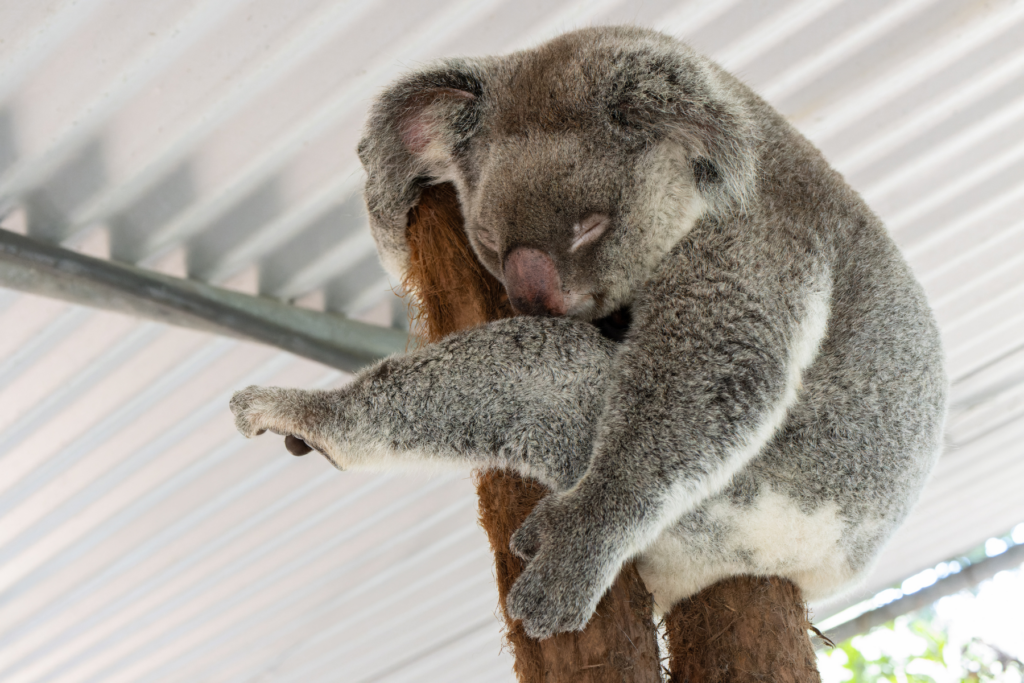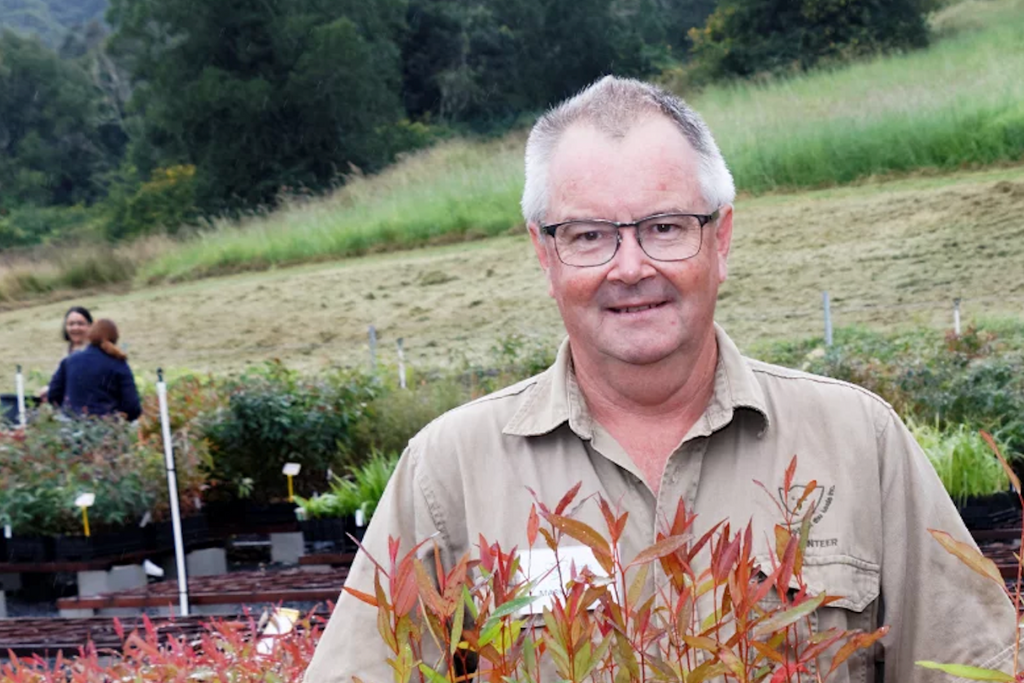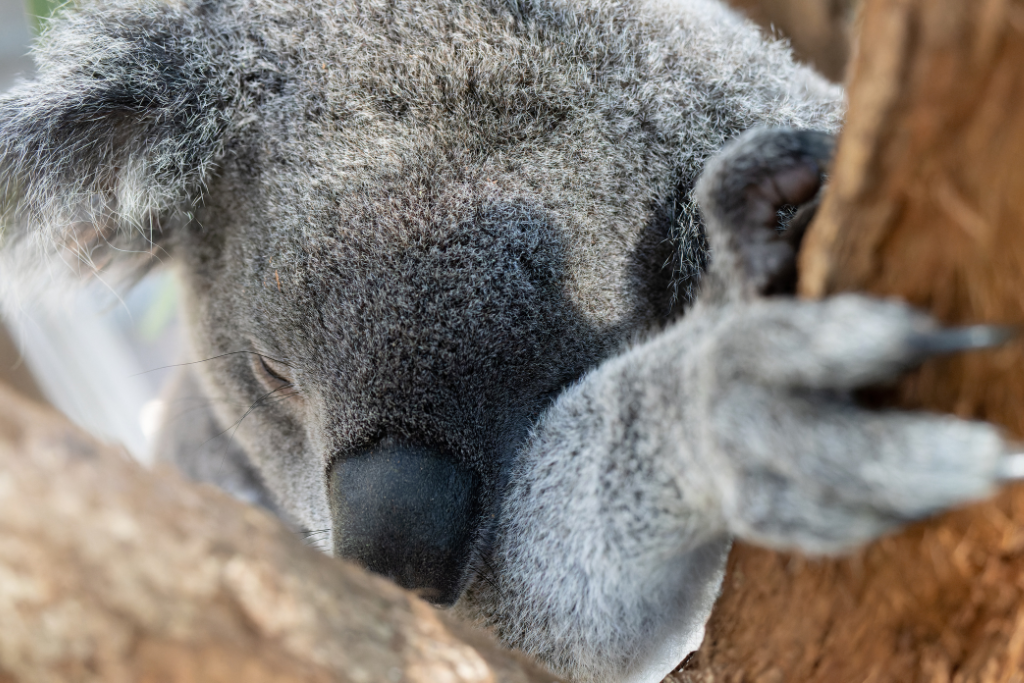A sure indicator of success when undertaking koala habitat restoration projects is having planted trees browsed by koalas. This has been the case on the Lismore floodplain where two-year-old trees are being regularly browsed by the very animal that we are targeting, the ‘Iconic’ koala. Scratch marks (like the ones above) and scats are clear indicators of activity.
A variety of other trees, including many non-eucalypts, are also used by koalas for feeding and shelter, or other behavioural purposes. These species have been included in the planting mix. Species such as Callistemon, Leptospermum and Casuarinas have an important role in the habitat restoration process. The planting mix is designed to ensure a wide range of species will benefit from the habitat enhancement work. For example, the threatened flying fox feeds on red gum blossoms during the winter months when food is scarce.
As we know koalas have a firm preference for eucalypt varieties and on the Lismore floodplain it is Eucalyptus tereticornis (Forest Red Gum). However, E. tereticornis growing on flats with heavier alluvial soils and good moisture availability may not be favourable to the same koalas on slopes where nutrients are not as readily available. It is these preferences that require our ‘leafers’ to provide leaf from different locations when catering for the needs of koalas in care.
The habitat enhancement work being undertaken on the Wilson River floodplain at Monaltrie, funded by the NSW Environmental Trust, focuses on the control of woody weeds, specifically coral tree, and vines. More than 4000 trees have been planted along 9km of riverbank, as replacements for these environmental weeds. The aim is to create a linear corridor for koalas and other fauna. Coral trees are stem injected; the trees break down quickly in comparison to hardwoods enabling endemic species to be planted amongst the fallen limbs. Coral trees on the lower bank must be retained as bank stabilisers.




